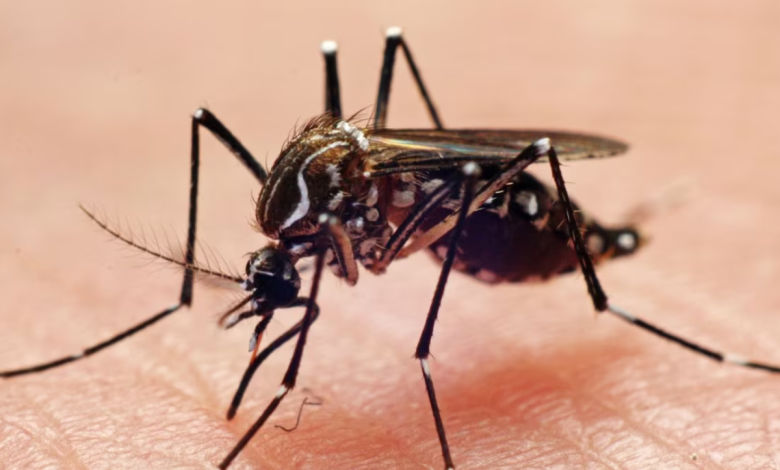Mosquito-Borne Diseases: Climate Change Creating A ‘Perfect Storm’ For The Bite And Buzz

Mosquito-borne diseases infect up to 700 million people each year and kill more than a million. As the planet warms up and extreme weather events get more frequent and intense, the mosquito season will get longer and the deadly creatures will expand their geographical range.
Experts fear the raging climate emergency is creating a ‘perfect storm’ for mosquito-borne diseases by providing favourable conditions for the creatures to breed and proliferate to new regions and re-emerge in areas where their numbers had subsided for decades.
Giving an example, Dr Katie Anders, an epidemiologist and director of impact assessment at the World Mosquito Program, said: “When households store water in response to drought, this can increase local mosquito breeding sites and disease risk.”
“We Need To Use All The Tools In The Box”
Endemic already across vast swathes of Africa, Asia and Latin America, mosquito-borne diseases are now re-establishing in populations across Europe as malaria, dengue, Zika and chikungunya cases in the continent trace an upward trajectory.
In Germany, extreme flooding last year alone saw mosquito numbers swell up to 10 times the usual estimates. Also, Southern Australia – a region currently struggling to contain its first major outbreak of Japanese encephalitis – is another example of mosquitoes reaching new territories.
“We need to use all the tools in the box to combat the growing threat,” said Dr Anders. This means governments and communities must step up efforts to control mosquito populations, enhance surveillance and response, and scale up the delivery of effective interventions.
Wolbachia Controlling Mosquito Populations Without Bloodshed
While many of the methods used to combat mosquito-borne diseases focus on the suppression of mosquito populations and need to be reapplied regularly. But Wolbachia is a “self-sustaining” and “cost-effective method” that is safe for people, mosquitoes and the environment.
Wolbachia is a common natural bacteria found in about 50% of insects. It is introduced in mosquitoes to prevent them from transmitting diseases. The Wolbachia-carrying mosquitoes then breed with the wild ones – increasing the number of mosquitoes with the bacteria.
Also Read: Empowering the Global South in Climate Action
“Wolbachia … [reduces] the ability of mosquitoes to transmit disease instead of killing them,” Dr Anders added. This cost-effective method developed by the World Mosquito Program gives communities long-term resilience and is proving highly effective in multiple countries today.



